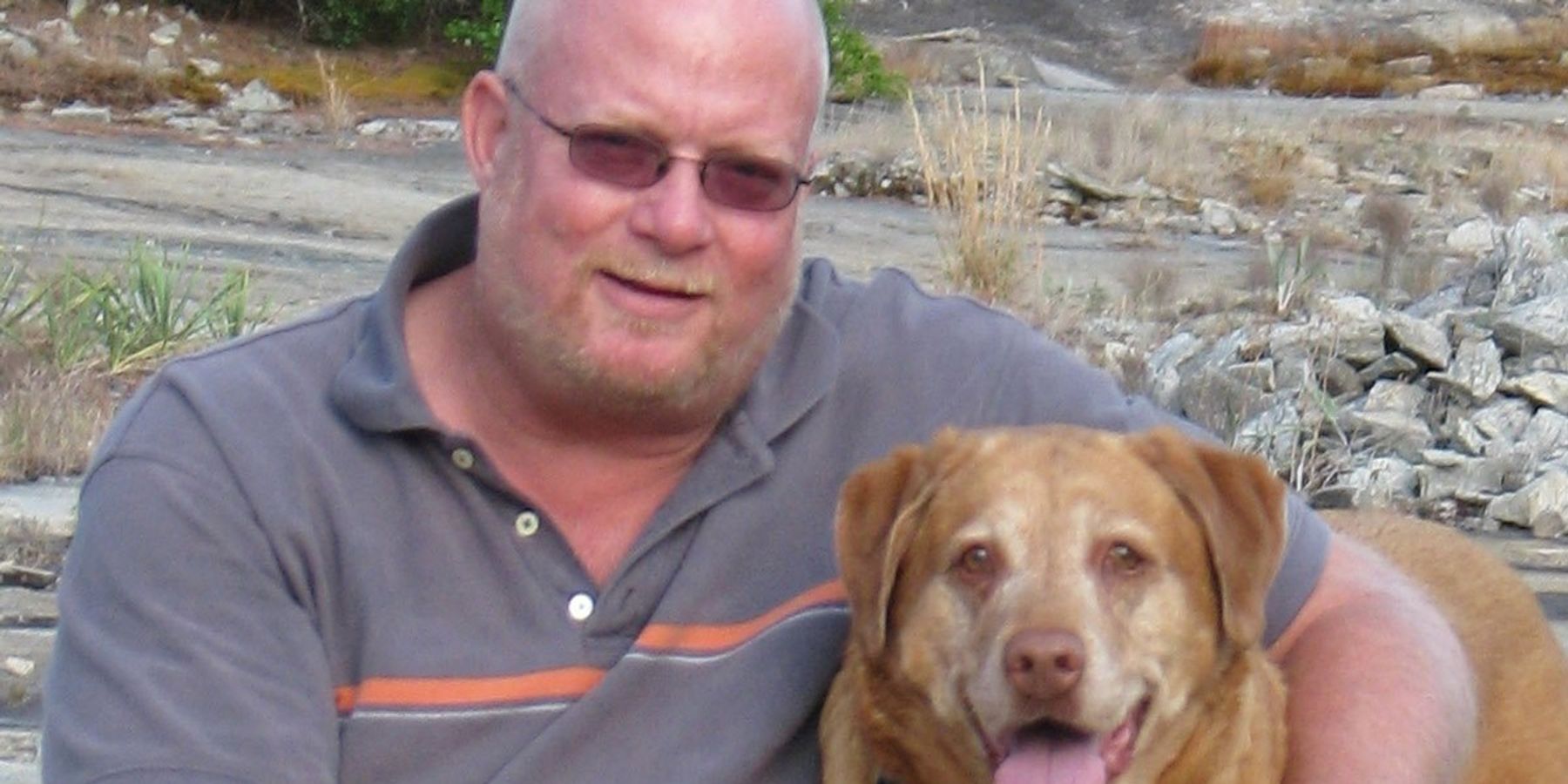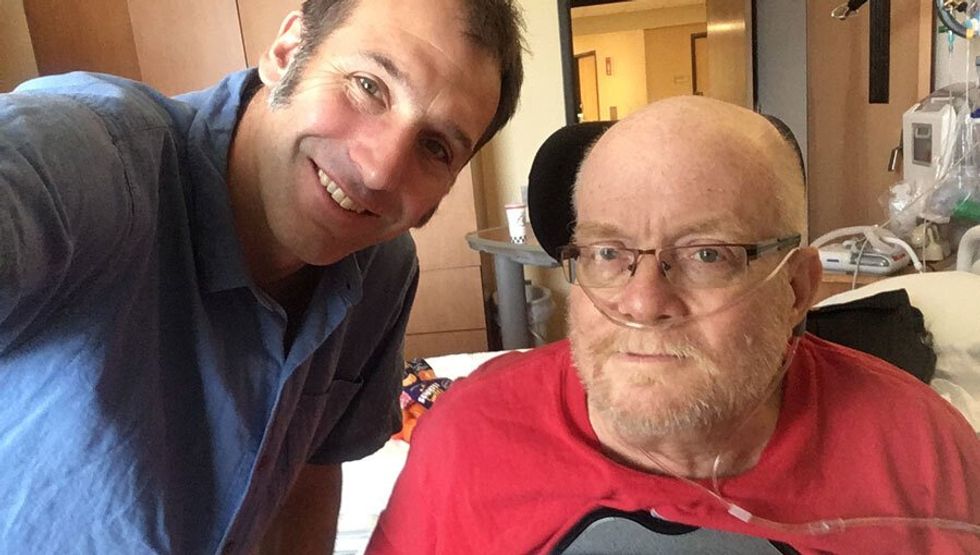
Environmental journalism loses a hero
Peter Dykstra – newsman, provocateur, friend and former publisher of The Daily Climate – passed away Wednesday.
Peter Dykstra – newsman, provocateur, friend and former publisher of The Daily Climate – passed away Wednesday.
“Are you a Tigers fan?”
That was the first thing Peter Dykstra said to me when we finally met in person at a Society of Environmental Journalists (SEJ) conference in 2013. He had a blue sportcoat with a mustard stain on it, a Red Sox baseball hat slightly askew, and command of the room.
Peter, publisher of Environmental Health News at the time, had hired me as a staff writer, my first professional journalism job. I was anxious, suffering the kind of impostor syndrome anyone young and unproven feels at a professional conference.
But Peter wanted to talk about baseball.
I was — and am — a lifelong Detroit Tigers fan. So instead of talking about toxics, glacial melt or our editorial calendar, we talked baseball. “Let me tell you about the time I met Jim Leyland in Florida at spring training … he was smoking a cigarette by the bleachers …” Peter said of the Tigers’ manager at the time. And off he went.
He later made a point to introduce me to other baseball fans at the conference — Chuck Quirmbach, Michael Hawthorne, Seth Borenstein — people I knew as journalism giants and, just months earlier, were only bylines to me. Anxiety gone, I felt accepted.
Peter passed away this week and the environmental world, the journalism world, and, well, the world lost one of the good ones. He was 67. Peter dedicated his career to environmental communication but, just like he showed me at a conference 11 years ago, he never let serious work or the curveballs that life threw him get in the way of a good joke or the opportunity to be kind.
Peter was born in 1957 in New Jersey and had the mafia jokes to show for it. He went to Boston University and in late 1978 started volunteering at Greenpeace, where he would work for the next 13 years, developing the organization’s U.S. media program. He then became an executive producer at CNN focusing on science, environment, weather and technology.
He won awards – an Emmy, the DuPont Columbia Award and a Peabody among them – and was pivotal in making climate change news more mainstream on TV, something he would continue to push for throughout his life. As he wrote in one column for EHN, “Since the 1990’s, I’ve had a front row seat for TV news' abject failure in covering climate change.”
After a stint as deputy director of Pew Charitable Trusts, Peter became the publisher of Environmental Health News and The Daily Climate in 2011, a year before I was hired.
When asked years later in an interview with SEJ — an organization he loved and respected — about moving between key leadership roles in journalism and environmental advocacy, Peter said “many journalists tend to hold a theocratic view that these two fields are irreconcilable. That’s BS. They each have their own rules, and it’s not brain surgery to follow the rules for either. I’d like to think I’ve benefited from learning the rules for both.”
Without Peter’s leadership, we wouldn’t be where we are today. Peter was an early adopter of collaborations, encouraging other publications to republish our work and vice versa. The more environmental news floating around, the better, was his line of thinking. Up until the very end, in fact, he contributed a short roundup of the week's environmental news to the nationally syndicated radio show "Living on Earth."
He was also a key supporter of our internship program, and finding ways to elevate the work of young journalists, female journalists, and journalists of color.
When Peter started at EHN, I was making my way through journalism school, and I went to EHN daily to scour the pages for new environmental news. A year later, when getting into a car with my new colleagues Marla Cone and Peter Dykstra, I said, “I can’t believe I’m in a car with Marla Cone and Peter Dykstra.”
“I already hired you, there’s no need to suck up,” Peter said. He never let me live that one down.

As a remote newsroom, I spoke with Peter often, but didn’t see him nearly enough. In 2016 in Charlottesville, Virginia, he showed up a bit late for our meeting, and explained that he had been pulled out by airport security for his “Putin-Trump, Liberty is for Losers” shirt (worn ironically, of course). Apparently, the guards wanted to know where they could get one.
Peter was suffering with bad back pain on that trip. The seemingly innocuous ailment would, within the next year, turn into a near-fatal infection that cost Peter his ability to walk. He became, in his words, “hell on wheels.”
As Peter got used to his new normal, our roles shifted. I became senior editor, and Peter became our weekend editor and columnist. Peter was damn near unmanageable. His copy would come in late, unformatted, off-topic — but full of humor, snark, and with a keen eye for political and industry bullshit.
His brain was an encyclopedia. He could recite random department heads in administrations going back decades and then pivot to who gave up the winning run in game 6 of the 1975 World Series. His columns were a peek inside his mind — seeing climate change with seriousness and clarity, but still tickled by the absurdity and ineptitude behind the crises.
A great example: Peter’s back and forth with the late Oklahoma senator James Inhofe, infamous for lobbing a snowball on the Senate floor during a snowstorm in 2014 in one of his many climate denial speeches and stunts. In 2019, Peter wrote to the office of the senator, who was 85 at the time, to set up an interview in 15 years (when Inhofe turned 100) to check in on how his climate change denial was holding up.
“I met Senator Inhofe just about ten years ago at Eastern Market in DC, wearing a bomber jacket and looking nowhere near his then-age of 75. So I think there's a good chance he'll be with us for another fifteen years. As you know, the Senator's views on climate change are in opposition to many scientists and political leaders. Fifteen years from now, we'll have a pretty clear idea who was right, and who was wrong.”
Inhofe’s people got back to Peter. “Sure! How is 10 am on Friday, November 17, 2034?"

Peter with Environmental Health Sciences executive director, Douglas Fischer.
The last few years for Peter were hard. And hard might be an understatement. He was at the mercy of our broken health care system and in need of 24-hour care.
But you wouldn’t have known it. When we spoke, I could hear the cable news blaring. I’d scoff at the latest political scandal or environmental crises, and he’d pull out a historical comparison and tell me he’d seen it before. (“You should’ve seen Ann Gorsuch.”)
In recent years, I’d sometimes go months without hearing from him, but then I’d see him light up my phone, one of the last people I know that would leave lengthy, detailed voicemails including his name and what time he called.
Like clockwork, I’d hear from him in February when he’d be excited about Georgia Tech baseball starting up. He’d ask me how much snow I was dealing with here in the North, and brag that he was gearing up for opening day.
I didn’t think I’d be writing a note about my friend’s passing today. I already find myself wondering what Peter would have said about the latest election nonsense and the baseball trades that happened this week. The world was a better place with Peter’s voice in it. He spent a career on the most serious of topics — the health of our planet — and never let it break him. He went from a volunteer to a newsroom leader, but never lost the ability to poke fun at himself and treated esteemed veteran reporters the same as student interns.
Just two weeks ago Peter gave me a call about a column he was working on.
Before he let me go, we talked about the latest player the Detroit Tigers were sending down to their minor league team in Toledo, which also happens to be downstream of Detroit, a city notorious for its sewage overflows.
“It’s just the latest crap Detroit is sending down to Toledo,” he said.
An environmental reference wrapped in a baseball joke .. or is it the other way around?
“You can use that one if you want,” he added, and then we hung up.













